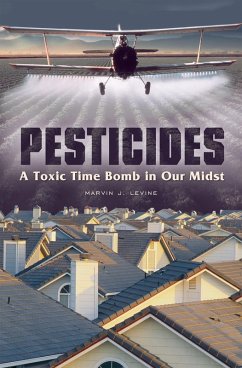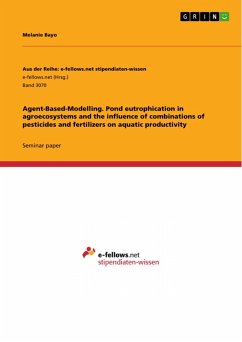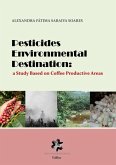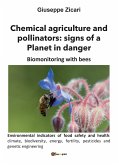Pesticide exposure has long been a cause for concern, and with good reason. Studies have shown that all persons, but especially children, pregnant women, farmers, farmworkers, and the elderly, may experience negative health effects from pesticide exposure. These effects may include acute poisoning, cancer, neurological damage, birth defects, reduced sperm count, suppressed immune systems, and reproductive and developmental harm. This book is a comprehensive examination of pesticide use, pesticide harm, and alternatives to harmful pesticides.
Levine highlights the role of farming, because a substantial majority-70 percent or more annually-of pesticides are applied in agricultural uses, thereby making their way into the food chain and into the water supply. More than 20 types of pesticides have been detected in U.S. groundwater, and it is believed that nearly 100 have the potential to invade our municipal water systems. Some level of pesticide contamination has been detected in every state, in both urban and agricultural areas.
Outside of agriculture, people are exposed to pesticides primarily in the home. Approximately 90 percent of all households in the nation use pesticides, and the number and concentration of these agents indoors has been shown to be greater than outdoors. Given that Americans now spend nearly 90 percent of each day indoors, this is an issue of real concern. In addition to homes, suburban and rural corporate parks are also affected. Schools are another worrisome venue. In too many of our 110,000 school districts, untrained persons are making critical decisions about the use of pesticides in school buildings and on school grounds. No other book currently examines this issue in such breadth and depth.
Levine highlights the role of farming, because a substantial majority-70 percent or more annually-of pesticides are applied in agricultural uses, thereby making their way into the food chain and into the water supply. More than 20 types of pesticides have been detected in U.S. groundwater, and it is believed that nearly 100 have the potential to invade our municipal water systems. Some level of pesticide contamination has been detected in every state, in both urban and agricultural areas.
Outside of agriculture, people are exposed to pesticides primarily in the home. Approximately 90 percent of all households in the nation use pesticides, and the number and concentration of these agents indoors has been shown to be greater than outdoors. Given that Americans now spend nearly 90 percent of each day indoors, this is an issue of real concern. In addition to homes, suburban and rural corporate parks are also affected. Schools are another worrisome venue. In too many of our 110,000 school districts, untrained persons are making critical decisions about the use of pesticides in school buildings and on school grounds. No other book currently examines this issue in such breadth and depth.









